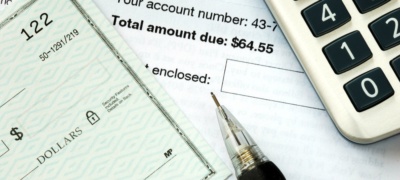You can only have one primary residence at a time. Simply declaring to the world that your new home is actually your primary residence isn’t quite enough. You actually have to live there for a majority of each year. In general, when you sell your home and it is your primary residence, you can exclude from federal income tax $250,000 (if you are single, or $500,000 if you are married) of the profits from the sale of the home. But you must have used the home as your primary residence for two out of the last five years. Learn more about what it means to have a primary residence.
Can I have two main residences?
Can I have two main residences? This reader wants to know if she can have two main residences. The IRS only permits each person to have one primary or main residence. You need to pass the IRS test (see below) to tell which is your main residence. Q: My husband was laid off several years [...]
What Are the Property Tax Implications of Dissolving an LLC?
What are the property tax implications of dissolving an LLC? How will taxes be affected if this reader dissolves the LLC the rental property is held in? What Are the Property Tax Implications of Dissolving an LLC Q: I own a rental property that I put into a limited liability company (LLC). Now, I’m planning [...]
Capital Gains Tax Changes If Primary Residence Includes Rental Property
Renting out part of your primary residence will change how your capital gains tax is calculated when you later sell. If you didn't have a rental property as part of your primary residence, you could save taxes on up to $250,000 of profit from the sale, if you're single. When you have a rental property as part of your primary residence you have to consider what percentage of your property is considered the rental property and your capital gains tax will change. How you use a property affects what kinds of tax deductions you can take and also how much capital gains tax you pay upon sale. You should consult a tax preparer for more advice when you have a rental property as part of your primary residence.
Mortgage Interest Tax Deduction Without Name On Mortgage
A mother-in-law passed away and her son and his wife took over the mortgage payments including mortgage interest. Can they deduct mortgage interest on their taxes even though their names are not on the mortgage? Yes, because they will use the property as a primary residence. Consult the IRS web site for more information on mortgage interest tax deductions.
Tax Deductions: Who Should Own Primary Residence
Does it make sense to have the title to a primary residence held by a limited liability company (LLC)? If your LLC owns a primary residence you may lose various tax deductions. It may also be more difficult to obtain favorable mortgage financing because a property owned by an LLC may be considered an investment property.
Buying Homeowners Insurance For Vacant House
A sibling asks about having a brother move into his widowed mother's now vacant home to facilitate buying homeowners insurance. The family plans for the brother to buy the home but he can't afford it until he receives his share of the estate. It's a good idea to have the brother move into the home to help buy homeowners insurance, but it might not be necessary to sell him the home right away.
Real Estate Taxes: Can You Deduct Them From Inherited Property
The U.S. Internal Revenue Service allows tax payers to deduct some real estate taxes when they file. Can an owner of multiple properties deduct the property taxes from a recently inherited property? A Think Glink reader asks about deducting the property taxes from a property he inherited with his brother from their mother. Sam and Ilyce say it's pretty unlikely that the real estate or property taxes may be deducted because the property is neither a primary residence nor an investment property.
Today On The Ilyce Glink Show August 10, 2008
There's a lot to talk about on Today's Show. CDs Are Looking Like A Better Deal Interest rates are starting to rise, which means that CDs are lookin...
Refinancing Mortgage: Cancel Mortgage Refinancing After Contracts Signed
Can you can cancel a mortgage refinance loan after having signed the paperwork. It depends on how soon after having signed the refinance documents you change your mind and some lenders may charge fees for backing out. Some contracts list specific cases when it is OK to cancel a loan.




